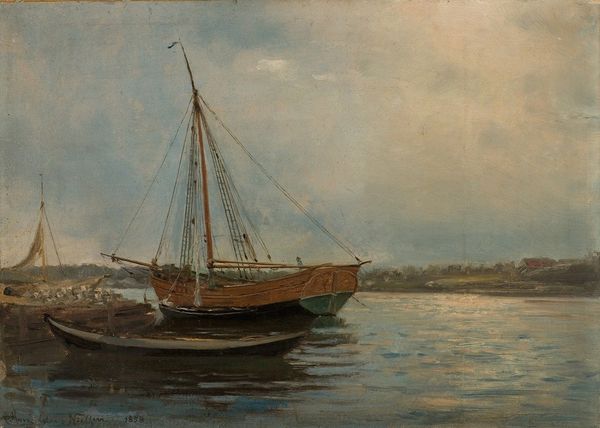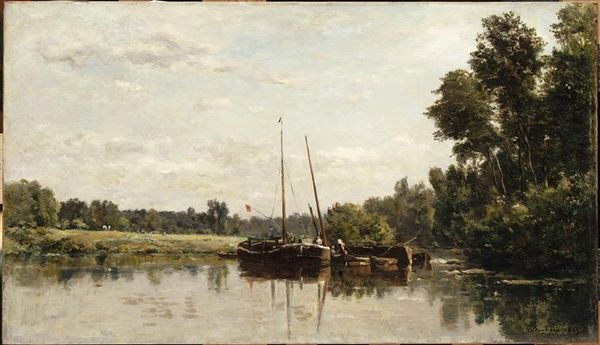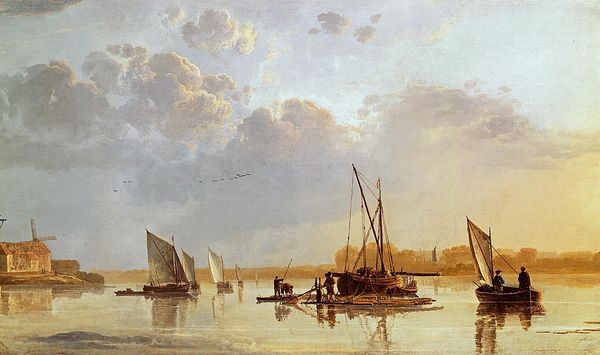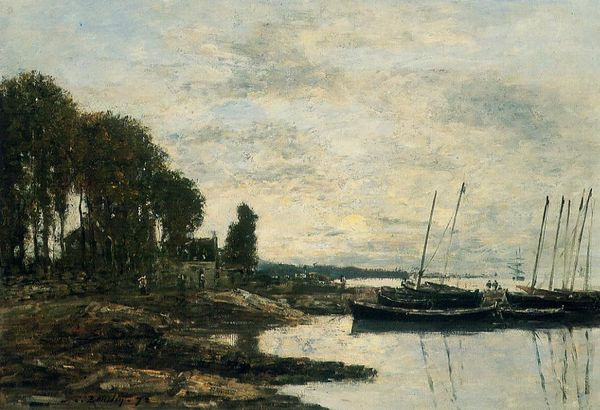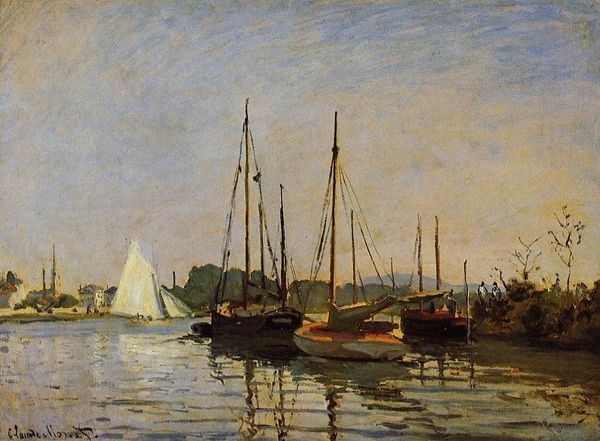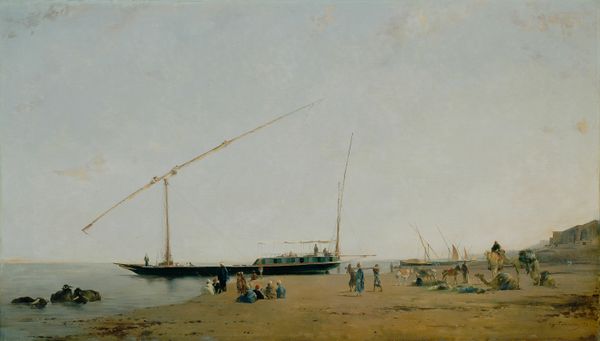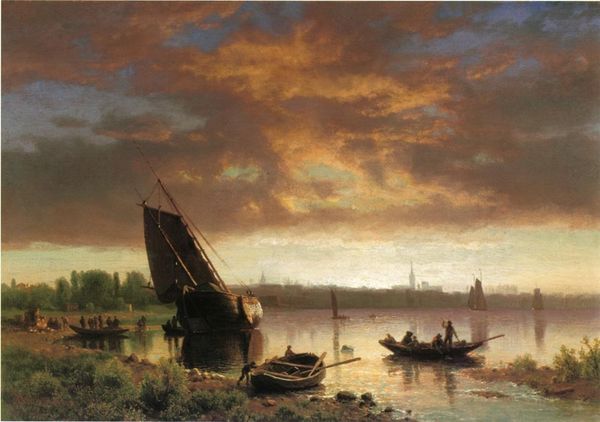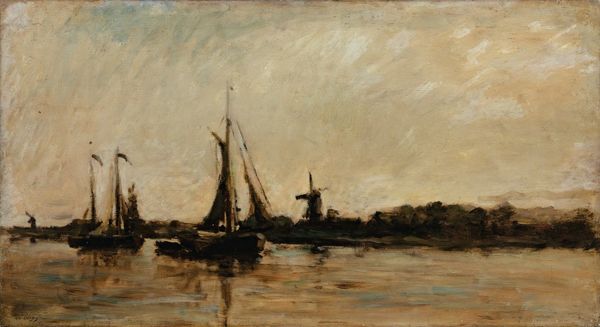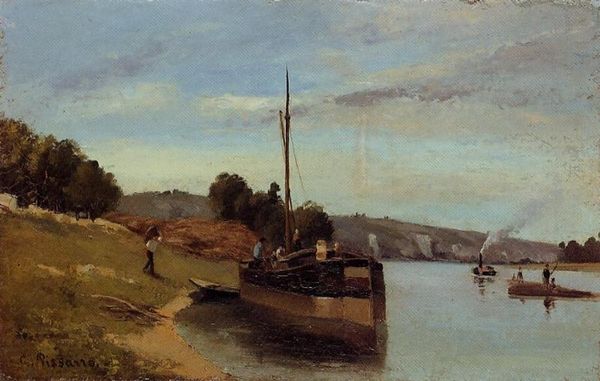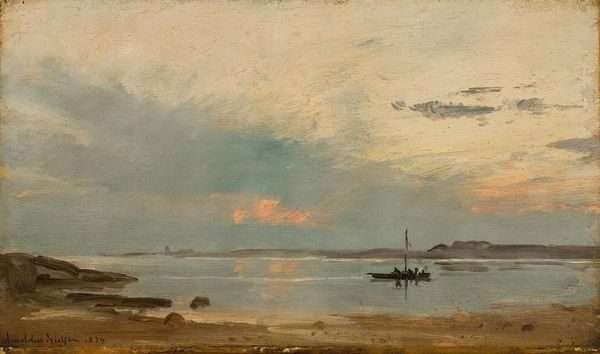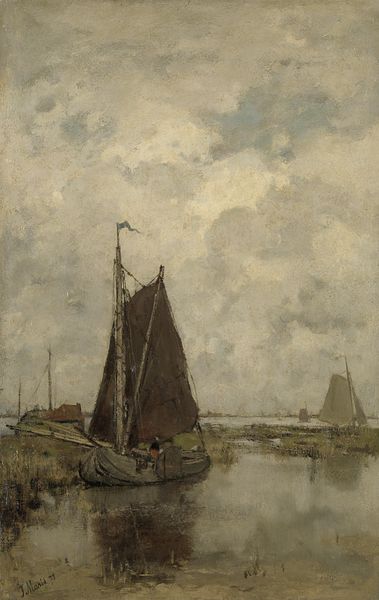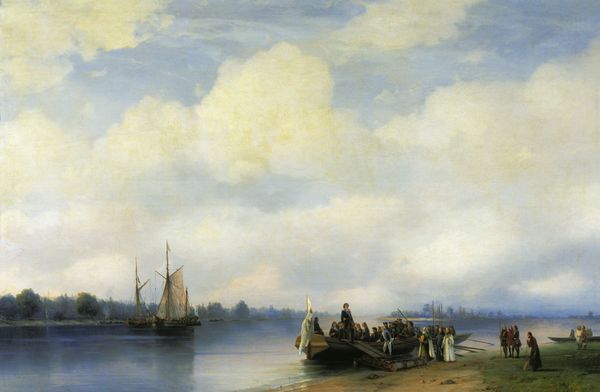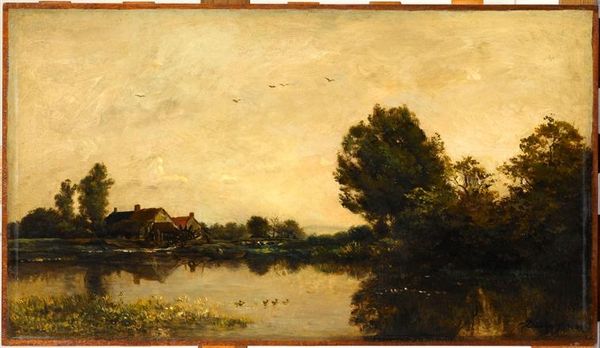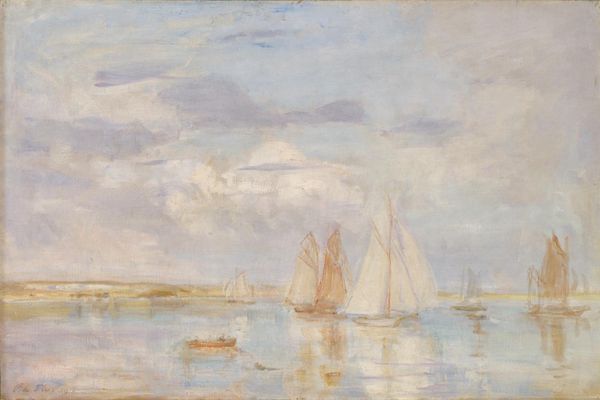
plein-air, oil-paint
#
impressionism
#
plein-air
#
oil-paint
#
landscape
#
river
#
impressionist landscape
#
oil painting
#
genre-painting
#
watercolor
Dimensions: 16 x 30 cm
Copyright: Public domain
Editor: Here we have "The Barges in Bezons," an oil painting by Charles-François Daubigny, thought to have been created sometime in the 19th century. There’s a still, quiet quality to the piece. What immediately strikes you about this landscape? Curator: What I notice first is the prominent use of the river and its reflections. Water often symbolizes the unconscious, the ebb and flow of emotions and time itself. Daubigny emphasizes this, mirroring the sky and the barges, almost as if suggesting a world both above and below the surface of our awareness. The barges, these almost still objects in the water, what might they represent to you? Editor: Perhaps a pause, a moment of stillness in the flow of the river... like life taking a moment to collect itself before moving onward? Curator: Precisely! And consider their placement, almost directly in the center. In the visual language of art, centrality often signifies importance or a point of balance. Daubigny places these barges, these emblems of industry and perhaps travel, as a nexus point. Does it feel active, dynamic or passive to you? Editor: Passive... there is very little indication of anything happening in the image; everything appears to be waiting. Curator: That sensation of ‘waiting’ is essential. In a rapidly industrializing France, Daubigny’s choice to represent these working vessels in a moment of repose may suggest a deeper commentary on the changing relationship between humanity and nature. Are they at rest, or are they, as you suggest, simply waiting for something to happen? Waiting is, after all, itself full of intention, a potent liminal moment. Editor: It’s interesting how the calm, almost mundane scene actually contains such a wealth of potential meaning once you begin to unpack it. I had just seen it as a landscape. Curator: Yes, and I hope now it echoes beyond the immediate to invoke deeper cultural, even psychological, reflections. Every image is a mirror if we know how to look.
Comments
No comments
Be the first to comment and join the conversation on the ultimate creative platform.
